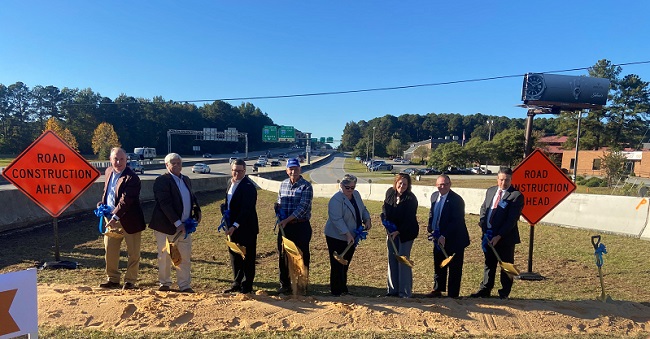Insight from CAGC: Infrastructure Investment and Jobs Act
To help our readers gain a better understanding of the Infrastructure Investment and Jobs Act and its implications for our two-state region, GroundBreak Carolinas reached out to Carolinas AGC’s Leslie Clark, Vice President of Operations and SC Director of Government Relations & Divisions, and Victor Barbour, PE, Director, NC Government Relations & Highway-Heavy Division.
What Does the IIJA Mean for our Country?
The passage of the Infrastructure Investment & Jobs Act (IIJA) authorizes approximately $1T in funding surface transportation, rail, transit, water/sewer, and broadband. This includes $550 billion in new funding. The bill also reauthorizes surface transportation authority until 2026 and creates new programs for carbon reduction and resiliency. In addition, the bill adds new formula programs outside of reauthorization funded through the General Fund for bridges and electric vehicle charging.
Implications for the Carolinas
For North Carolina, the Federal Surface Transportation Program grew by more than 30 percent which means funding is estimated to increase from $1.142 Billion in FY 21 to $1.609 Billion in FY 26. This increase will allow North Carolina to keep more projects on schedule. There is also a new specific bridge program that will provide an additional $457 million over 5 years to rehabilitate or replace existing deficient bridges as well as $109 million over 5 years to expand the electric vehicle network across the state. In addition. The IIJA also creates discretionary/ competitive grants program that allows for North Carolina to compete for an additional $25 Billion in funding for roads and bridges.
Funding to South Carolina is estimated to increase from $733 million in FY 21 to $1 Billion in FY 26. The increase in the program will require additional funding from the state to match the new funds. The South Carolina Department of Transportation (SCDOT) will be asking the state legislature for a minimum of $100 million and a maximum of $200 million in matching funds. Federal funds will allow SCDOT to close the gap and increase funds for local governments (MPO’s & COG’s) over the next four years from $138 million to $238 million. There is also new bridge-specific funding that will complement the state’s existing bridge program, allowing SCDOT to increase the number of bridges they plan to repair, in their ten-year plan, from 465 to 500. SCDOT will also use $43 million in existing state appropriations to leverage federal funds to build new rest areas. Initial focus will be on the I-26 evacuation corridor to complement Gov. Henry McMaster’s initiative to widen I-26 between Charleston and Columbia. The state will also add electric infrastructure to facilitate conversion to electric vehicles.
On the heels of the passage of the IIJA, SCDOT recently broke ground on the Carolina Crossroads project, the largest interstate improvement project in state history. Carolina Crossroads will cost $1.7 billion and will improve fourteen miles of I-20, I-26, and I-126. Work is slated to begin on the project this month and Carolinas AGC members will be performing work on many phases of this project.
Main photo: Carolina Crossroads project kickoff







